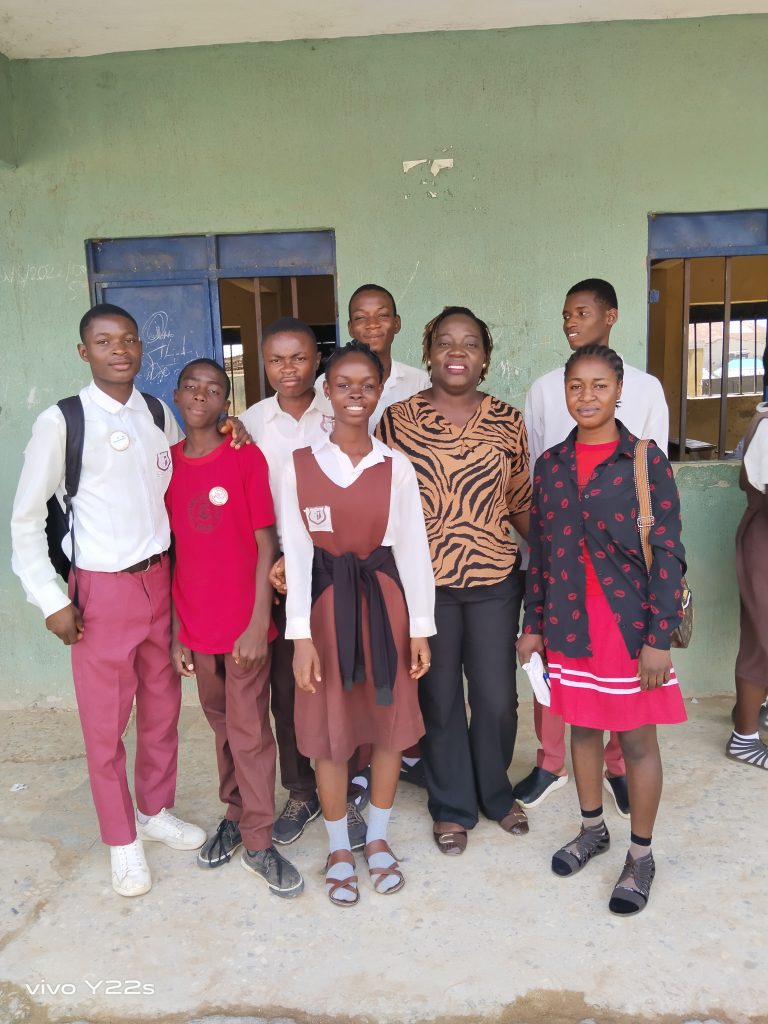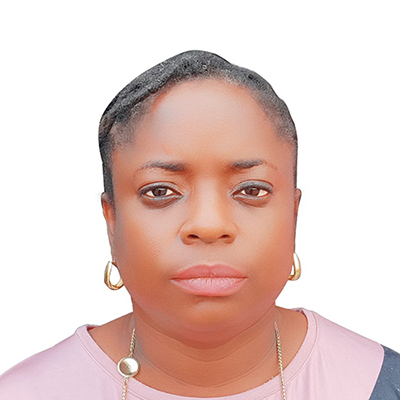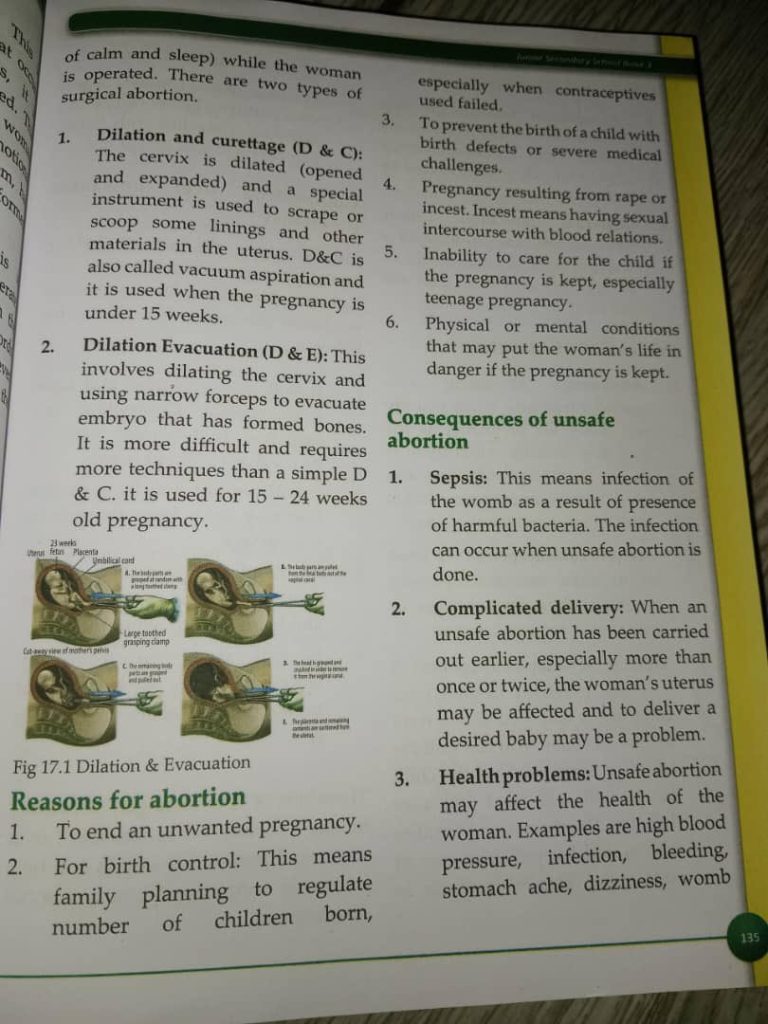
Maureen Okpe
Maryam Jiddah story begins in the bustling city of Abuja, in a school environment at a suburb in the outskirts of the nations capital filled with promises of a bright future.
At 14 Maryam found herself pregnant, unprepared after a one time sex with her boyfriend and classmates who ‘disappeared’ upon hearing the news of her pregnancy.
“I felt like taking my life, let me just die and runaway from the shame. I told a friend and she related the story to some persons and I became a laughing stock.
“People kept pointing fingers at me everywhere I turned, there was judgement and mockery.”
Miss Maryam described the stigma experienced among classmates and peers who she said are also involved with boys but now found her wayward due to her pregnancy.
“I almost died trying to self medicate and terminate the pregnancy.”
The World Health Organisation (WHO) estimates that unsafe abortion contribute significantly to maternal mortality in Nigeria. Legal restrictions, socio-cultural barriers and inadequate healthcare infrastructure exacerbate the issues leaving many women with no safe options.
Understanding The Scope Of The Problem
In Nigeria, Sexual and Reproductive Health Rights are almost non-existence as the use of contraceptives and family planning is not pronounced and abortion is illegal carrying a heavy jail term of up to fourteen years imprisonment.

Dr. Modupe Adedeji
According to Consultant Obstetrician and Gynaecologist, Lagos State University Hospital, Dr. Modupe Adedeji, the country is still grappling with the services of contraceptives and family planning and noting, for abortion, it can only be carried out to save the life of a pregnant woman.
Dr. Adedeji said, despite the criminalisation of abortion, more than half of all unintended pregnancies in Nigeria are resolved using abortion. In most cases such abortion practices are unsafe and often require treatment for complications.
Abortion, a deeply complex and contentious issue in Nigeria, is shaped by a multifaceted blend of cultural, religious and legal factors, creating a challenging landscape for women seeking reproductive health services. The rich cultural tapestry, interwoven with diverse traditions and beliefs, significantly influences perspectives on abortion, presenting a complex dilemma that urgently calls for reform.
To exacerbate the situation, cultural attitudes toward abortion are often reinforced by the teachings of the country’s major religions. Both Christianity and Islam, the predominant faiths, generally oppose abortion on the grounds of the sanctity of life, profoundly shaping public opinion and reproductive health policies.
……On Religious Context in Nigeria
In Islam for example, the topic of abortion is approached with considerable nuance, reflecting the religion’s deep respect for the sanctity of life. Central to Islamic thought is the belief that human life is sacred and must be protected. This principle underpins the general stance on abortion, which varies depending on the stage of pregnancy and the circumstances surrounding it.
The Quran and Hadith place significant emphasis on the protection of life, establishing a strong foundation for the prohibition against taking life unjustly. Abortion is typically viewed as a serious matter due to the belief that human life begins at conception, though the specific timing of ensoulment—the moment when the soul is believed to enter the foetus—plays a crucial role in determining the permissibility of abortion.
According to many Islamic scholars, ensoulment is thought to occur around 120 days into the pregnancy, or roughly four months. This belief is based on Hadiths that suggest the soul enters the foetus at this stage. Consequently, abortion is generally considered impermissible after this period unless there are compelling reasons. Before this point, there is more flexibility, but opinions vary among different scholars and schools of thought.
Exceptions to the prohibition on abortion include situations where continuing the pregnancy poses a serious risk to the mother’s life or health. In such cases, clerics say preserving the life of the mother is prioritised, and abortion may be permitted. Additionally, some scholars allow abortion if severe foetal abnormalities are detected, particularly if these abnormalities are so severe that the child would face immense suffering or would not survive long after birth.
However, abortion for social or economic reasons is typically not permitted in Islam. The religion emphasises the responsibility of providing for a child and the sanctity of life, suggesting that decisions around abortion should be approached with this in mind. The interpretation of these principles can differ based on the Islamic jurisprudence school one follows—Hanafi, Maliki, Shafi’i, or Hanbali—each offering its own perspective on the issue. Additionally, as clerics explained, local cultural and legal contexts can influence how these principles are applied in different Muslim-majority countries.
In Christianity, abortion is also approached through a variety of interpretations, reflecting the diverse beliefs within the world’s most followed religion. Also, central to most Christian views on abortion is the belief in the sanctity of human life. Christian perspectives on abortion often emphasise that life is sacred from conception or an early stage of pregnancy.
This belief is supported by passages in the Bible such as Psalm 139:13-16, which speaks of God’s involvement in the formation of life in the womb, and Jeremiah 1:5, which suggests that God knows individuals even before they are born. These scriptures contribute to the view that human life begins at conception and should be protected.
According to Rev. Fr. Clement Laha, a Roman Catholic Priest, the stance on abortion is notably strict, the Catholic Church teaches that life begins at conception and that abortion is morally unacceptable in all circumstances except perhaps to save the life of the mother.
“This position is grounded in the belief that every human life is sacred from the moment of conception until natural death. The Church’s teaching is clear in its opposition to abortion, reflecting its deep commitment to the sanctity of life,” Fr. Laha said.
Experts have posited that, this devastating infringement on human rights can have dire consequences on the health and well-being of women and girls regardless of their age and socio-economic backgrounds.
Such health consequences they said, can be acute, chronic and sometimes deadly with even more grim outcomes like unintended/unwanted pregnancy, and abortions/unsafe abortions.
Morals or Pretence
Senior Educational Officer, Nasarawa state, Esther Alabi said what Nigerians perceive as morals is actually pretence. This is as people hide to carry out these activities but claim indifference especially in the public eye.
She disclosed that, the education board had approved a Junior Secondary School Three science textbook, ‘Classic Basic Science and Technology for Junior Secondary School,’ which details the process, types, and reasons for abortion, as well as family planning but was kicked against by some groups.


The approved textbook
The book, published by Thursmay Publishers, is authored by M. Abdussalam, F.A Ibekwe, D.E Akintelure and B.B Akintelure and has the approval stamp of the Nigerian Educational Research and Development Council on the cover page.
In Nigeria, the approval of school textbooks is primarily overseen by NERDC. The NERDC is responsible for developing and reviewing curricula and ensuring that educational materials, including textbooks, align with the national curriculum and meet the required standards.
Also, NERDC has the statutory responsibility to: develop, review, and enrich curricula at all levels; undertake and promote book development and local authorship for quality assurance; and conduct educational research to inform public policy formulation and implementation.
But in October 2024, the All Nigeria Conference of Principals of Public Schools and the Parents Teachers Association strongly condemned the book for containing a chapter that covered the different types of abortion and how to use family planning in preventing it.
Alabi sadly disclosed that, “on a personal knowledge I know one of the members who was fighting against this but have had abortion herself and on one occasion taken her child for the procedure.
“We like to pretend a lot in this country claiming moral uprightness.”
For her part, Dr. adedeji said, the discriminations are too much, such that adolescents can not approach the family planning services or clinic for fear of being judged by outsiders.
“When they see young persons in the clinic they will be asking what is she doing there? Even the health practitioners in the clinic look at you somehow. Questioning what you are doing in the clinic. You mean you have started having sex at 15, 13?
“But we hear of stories of fathers sleeping with daughters, you have not even asked anything you are already judging. At the end of the day you find them in the labour wards with teenage pregnancies.
Sexual Reproductive Health Education, a need for women and girls
Reports from health professionals have disclosed that, too many young persons, women and girls receive confusing and conflicting information on sexual education as they make the transition to adulthood. A growing number of studies show that young people are turning to the digital environment as a key source of information about sexuality.
Again, the health expert, Dr. Adedeji stated that information on contraceptives and safe abortion are almost not available to young girls and women who need them before and during the age of child bearing.
This is as the Nigerian society tend to preach abstinence but do not really educate young persons at instances when abstinence is not possible or practiced.
“Following the shame, and mockery from my peers I decided to look for means to terminate the pregnancy. One of my classmates asked me to boil ginger and cloves, but this did not work,” Maryam continued.
However, a classmate directed her to a drugstore, where she said, a drug was sold to her and directed she inserted a tablet in her vaginal and took two others with warm water.
“I was instructed to avoid taking cold water after taking the drugs. Late at night, I felt the urge to urinate, but before I could get to the bathroom, blood came gushing.
“I kept bleeding for about three days and the blood kept staining my dress. I was scared and had to confide in my mother. The disappointment in her eyes as I was rushed to the hospital is something I can never forget.”
Dr. Adedeji insisted that, people should be able to make choices, decisions, not only when not healthy enough, but having other life goals and also economic capabilities.
“People should embrace contraception. People should embrace family planning. Family planning or contraception starts from you knowing yourself, knowing your medical circle, knowing your safe and unsafe time.
Methods Of Family Planning
While speaking on the various forms of family planning The Consultant Obstetrician noted as number one, preventive measures, stating if this is difficult, the barrier method should be used as it is another simple method. One of the partners make use of a condom, either a female or male condom. It then starts getting technical with ingesting medications.
“ThIs could be orally, intramuscularly, intra-uterine, implants. These are all the types of family planning methods that we have. This will need more intervention from a health personnel.
“You then need to be actually checked to find out, the method that suits you. And the reason for all of these other ones is because they give a more surety of pregnancy not happening. The failure rate is actually slimmer than going through the ones that you cannot do yourself.
“That is the calendar method, the withdrawal method.Those ones can fail, despite you even being very careful. So these ones offer a less form of failure rate.Its not that the contraceptives do not fail, but when you’re talking about failure rates as less than 1%, that means that it’s safer.
“Then we even have the permanent method, of tube tying when you are sure that you are not having kids anymore, instead of using abortion as a means of contraception. Even the whole process of abortion itself, is also detrimental to life. Most especially when it’s unsafe. But people continue to explore the unsafe method because of the law of the land, the law has brought about discrimination, it has brought about segregation.
“There are several stories that I’ve heard, and several patients I have managed to the point of death. And even the ones that we have tried our best to avoid them dying, that they still die. And those that don’t even get to the hospital, that they eventually bring their bodies to the hospital, it’s so pathetic. Very, very pathetic.
She stated that, it is very important that we need to take all these into consideration and then look at it from the angle of number of avoidable deaths.
“We cannot de-religate morals, yes, but then how can we create a balance?
Myths Around Family Planning
Myths and misconceptions around family planning and contraceptives are prevalent in Nigeria, and they significantly impact usage rates.
According to Dr Adedeji, the myths surrounding the use of contraceptives and family planning have been a stumbling block to the wide use as some persons believe it causes weight gain, and for some they experience headaches and some believe after the use of family planning, it may be difficult to get pregnant.
She said, “even people go to the extent of saying that having a permanent form of contraception or family planning may mean in your next world you may not be able to get pregnant. How do you know there’s a next world? how can you put the two together?
Health Professionals Not Helping Matters
A civil servant, Mrs Taiwo Durayi expressed dismay at the unprofessionalism of some of the health workers who renders the family planning services.
According to her, they expect people before visiting the hospital to know what method they want to carryout, without providing professional help.
A visit by our correspondent, to the General Hospital Mararaba, along Orange market a surburb at the outskirts of FCT, confirmed her outcry.
The attending nurse although took her time to explain the available contraceptives in the clinic, stated, sometimes persons complain of not menstruating, which according to her is a plus considering the recent hike in prices of sanitary towels, not bothering to know the patients history.
However, Dr. Adedeji reiterated the need for professional help when going for family planning, noting, even for the very simple ones, one need to be guided.
“It is not just by running investigations. It starts from history taking.
“For instance, these things are hormonal drugs. And then we have to know that the hormones are okay for you to take in. Starting from your medical history.
“There are some of those family planning methods that we want to avoid in some medical conditions. Like patients with sickle cell anemia. Even patients with HIV diseases.
“There are some contraception that we prefer to recommend than others, for married women, we call it family planning, for the unmarried, we call it contraception. There are some that we want to offer for married and unmarried people. Or single people, or younger people, or adolescents.
“So, it is not just about investigations only, history taking is also very important.
“A woman that have had several surgeries on the uterus. Is it going to be safe to insert an intrauterine contraceptive device? Is it going to be safe for a woman having fibroids to be given intrauterine contraceptives? Or a woman that just delivered and she is just bent on the fact that another pregnancy must not come again, seeing her children are barely a year older than each other.
“Am I going to now say that because of that, I will now give her estrogen-containing drugs? Meanwhile, if I start introducing that, that means her breast milk will stop. So, these are the things we juggle.
“We are not to help select, but bring to the knowledge, the available contraceptives in the center, how it works,bearing in mind the history that have been taken.
“The family planning clinic should not be just a visit but follow up to know if the method is okay, if it should be changed. These are services that people should explore. But most times people just visit the clinics once and never to be seen again, especially for the methods that last for years, but this should be an ongoing thing.”
Challenges
Stating challenges in advocating for Sexual and Reproductive Health Rights, Dr. Adedeji decried obstacles breaking the chain of information in the health insurance system, in other climes, the system properly takes care of patients, this helps the environment to be more friendly.
The Senior Gynecologist and Obstetrician also lamented the ‘japa’ syndrome which have created a gap of trained personnel. As trained health workers are expected to become trainers themselves but before such opportunity is created, they have sought greener pastures abroad, creating a vacuum that takes time to be filled. She stated the need to train and employ more personnel to meet demand.
Solution Base
Health practitioners have noted that, It is important we take our health sector as equal as education, economy, although they are all intertwined, it is very important that we sit up and stop taking positions. And when we take a position, it is because we indeed want to make a change.
“Start from the family, what training are parents giving to their children, again what does the parents know to pass down to their children, when does sex education starts in the family.
“It is essential to reconsider the current abortion laws, shifting our focus beyond solely the moral perspective to also consider the broader social and health-related consequences we are encountering. A balanced and comprehensive review could lead to a more informed and inclusive approach to this complex issue,” Dr. Adedeji stated.
A Ray Of Hope
The Head, Health Promotion Department of the Federal Ministry, of Health, Barrister Nma Ogbonna, disclosed that the government is working towards expanding access to safe termination of pregnancies in the country.
Barr. Ogbonna said, some sections of the criminal code 1090 on abortion were being looked into among relevant ministries, departments and agencies (MDAs) towards ensuring safe healthcare options among Nigerian women and adolescents.
She further said the health promotion department was working assiduously to educate the populace on sexual reproductive health and rights, and tackling maternal deaths in the country.

Weldone Ms Maureen for this thoughtful research. I hope this flies so that policy will be in place to encourage safe abortion and reduce unsafe abortion
Thank you Fasasi, I am honored that you took time to read through.